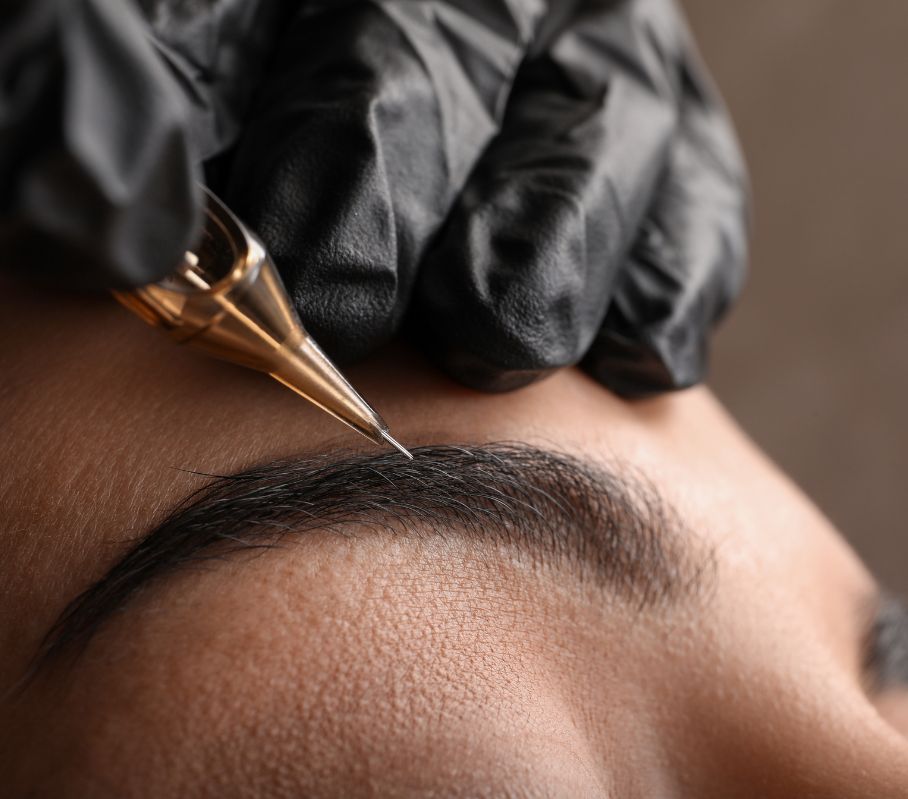Fort Walton Beach, FL
428 Mary Esther Cut Off NW Unit A,
Fort Walton Beach, FL
32548, United States
(850) 374-3595

subscribe
Fort Walton Beach, FL
428 Mary Esther Cut Off NW Unit A,
Fort Walton Beach, FL
32548, United States
(850) 374-3595
Gulf Breeze, FL
To book and check for availabilityYour one-stop-shop for lash extensions, brow sculpting, skin care, and full body waxing.
The Beauty Experts is staffed with licensed and experienced estheticians to provide you with professional services in a relaxed and calm environment. Choose from a wide range of lash extensions and brow shaping, facials, full body waxing, Brazilian Butt Lift, body contouring, and skin lightening.
428 Mary Esther Cut Off NW Unit A,
Fort Walton Beach, FL 32548, United States
(850) 374-3595
To book and check for availability visit the following link:
Book Now
Colombian wood therapy is an amazing and natural way to help minimize the appearance of cellulite and promote tightening and toning results. Our professionals use wooden implements to initiate circulation in the facia tissue. Book a consultation to see if this is right for you!
Our non-invasive Brazilian Butt lift is achieved with vacuum therapy to enhance volume and sculpt your toosh! Our special technique will help you tone and tighten your hamstrings and lift your booty.
Our permanent makeup artist specializes in Ombre Powder Brows and Lip Blushing. Ombre powder brows is a great way to get the makeup look without having to apply your brow makeup ever again! Results heal in 2 weeks and can last 2-5 years. We recommend at least 1 touch up.
Lip blushing is a soft blushing effect obtained by softly shading in your lips with beautiful natural colors to enhance your lips.

Eyelash extensions can transform your face in a way like nothing else can come close to. Once you’ve tried them, you’ll wonder why you waited so long. What do we love about lash extensions?
It’s safe and painless – In fact, many clients fall asleep while getting their lash extensions or fills done, it’s that comfortable
Well-groomed eyebrows have an unmatched ability to enhance our facial features, frame the eyes, and lift the face. Brows are one of our most prominent facial features, so it makes sense to give them care and attention.
Expert brow waxing and shaping can transform your look with the perfect brow arch and form.
Sometimes basic waxing and shaping aren’t enough. If you’ve got a brow problem like thinning hair, gaps from overplucking, or unruly hairs that won’t stay put, brow lamination may provide a solution. Brow lamination helps thin brows to appear fuller and unruly brows to stay in place for 6-8 weeks.
Or take the plunge with Ombre Powder Brows for semi-permanent results that will last for 2-5 years. Ombre brows work well for every skin type and give you natural-looking eyebrow shading that starts lighter at the bulb (inner brow) and goes darker towards the tail.

Picture yourself relaxing onto the massage bed as your skin care tech covers you with a soft blanket and wraps your hair back, you close your eyes, and the magic begins.
A monthly facial is a wonderful way to recharge both you and your skin, especially if you keep a busy schedule.
A good facial helps renew skin cells by stimulating blood flow under the skin, and this, in turn, decreases puffiness and brings oxygen, proteins, and nutrients to the skin.
Whether you need treatment for acne, anti-aging, sun damage, or a chemical peel, you’ll find what you’re looking for at The Beauty Experts. Try one of our “add on’s,” like a hydrojelly mask, dermaplaning, or an enzyme peel. Our facials include deep cleansing, exfoliation, facial massage, and nourishing serums and lotions to rejuvenate your skin and leave you looking and feeling beautiful.
Everybody deserves to feel comfortable in their own skin. provide professional skin lightening for the face, knees, elbows, and intimate parts of the body to help you get rid of blemishes and darkened skin. Skin lightening is painless and safe for even sensitive skin.
On the other hand, if you love the bronze-toned, just-been-to-the-beach look, but don’t want to subject your skin to hours of dangerous UV rays, a spray tan is the perfect choice. It’s quick and easy, with no streaks, and our experienced technicians will give you just the shade you desire.

A lash lift is a simple procedure that curls and lifts your natural lashes using a lifting perm solution, giving eyelashes a longer, fuller, and more defined appearance. This is a relaxing and painless treatment. With proper care, a lash lift will last 6 to 8 weeks on average.
Eyelash extensions are individual strands that look like natural lashes. A trained lash technician applies the strands one by one to the client’s natural lashes. Lightweight and comfortable, lash extensions make for thicker, longer lashes. Clients can choose between different types of extensions, from a more natural to a dramatic look. For a first-time client, the procedure takes about 2 hours.
According to the American Academy of Opthamology, when applied properly by a reputable and licensed lash technician, eyelash extensions are considered a safe procedure.
Lash extensions generally last 4-6 weeks before they need “filling.” A fill is an upkeep procedure during which your lash stylist will remove any overgrown lashes and fill in empty spots. Since people lose 20-30% of their eyelashes every two weeks, it’s natural that your lashes will look sparser after a time and need regular fills.
Your lash stylist will apply a semi-permanent dye, or tint, to your natural lashes, to highlight facial features and dramatize your lash line.
Vacuum therapy is a noninvasive massage technique that lifts your butt via a suctioning device and ultrasound waves that break down fat deposits, facilitate the production of collagen and elastin, and reduce cellulite. Vacuum therapy gives patients the firmer, rounder look of a Brazilian Butt Lift, without undergoing surgery.
A facial is a session of skin care treatments for your face that generally includes cleansing, exfoliating, a customized facial mask, extractions, moisturizing, and facial massage. A facial can clear pores, tighten skin, reduce wrinkles, and result in healthier, more youthful skin. Facials are generally very relaxing, and a nice way to pamper yourself when you need it.
Body contouring, or body sculpting, can eliminate fat, shape areas of the body, and tighten skin.
Colombian wood therapy body contouring employs wooden anatomically designed instruments. This natural therapy can tone, tighten, and redefine body contours, reduce cellulite, eliminate toxins, stimulate lymphatic drainage, and facilitate fat loss.
Ombré powder brows is a semi-permanent eyebrow styling method that utilizes a small machine to place tiny dots of pigment into the skin, creating a soft-shaded brow pencil look. Ombre brows last between two to five years.
Microblading uses a handheld tool, which makes tiny incisions that look like individual eyebrow hairs. Ombre brows are created with a machine that disperses tiny dots of pigment in an airbrush manner. With microblading, you get the appearance of individual brow hairs, whereas ombre powder is more of a uniform shaded look. The ombre powder brows technique is less invasive, longer-lasting, and painless, whereas microblading can involve up to a moderate level of pain and requires more frequent touch-ups.

subscribe
Save 10% on your first visit.
Enter email for code.
